Nobody Wanted to Buy ‘The Teacher’s Lounge’: Now It’s the German Oscar Entry
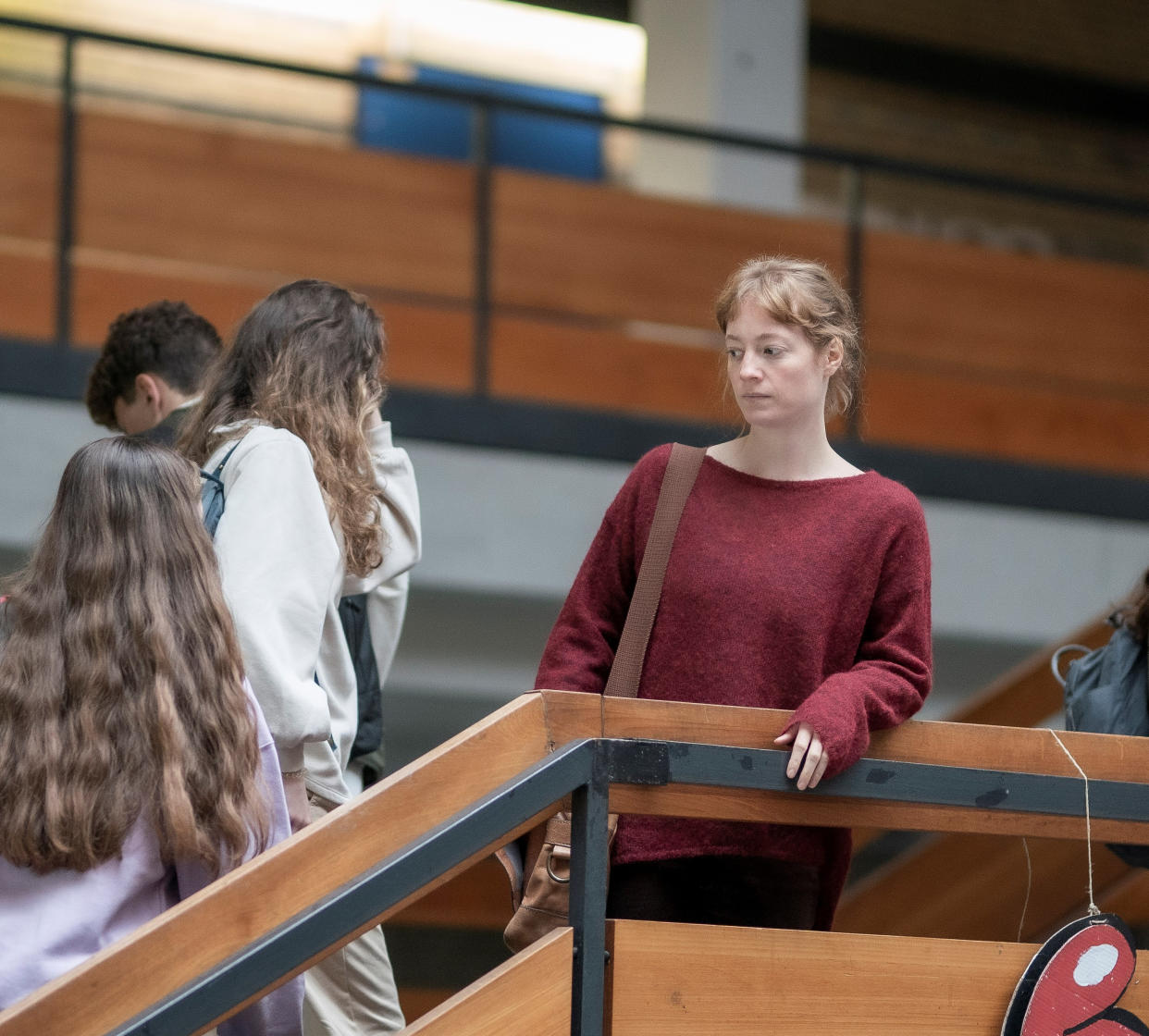

It was easy enough to get made, said German director Ilker Çatak over coffee at the Toronto International Film Festival. He came up with the idea and co-wrote low-budget indie “The Teacher’s Lounge” with his old school-mate Johannes Duncker. “We wanted to make a movie about a young teacher who gets into trouble,” said Çatak. “Education is a topic that everybody has a relationship with. So whether you’ve been in school, or you have kids in school, it’s a universal thing.”
Inspired by a true incident from their school days, the writers set the entire movie inside the school, cutting out the backstory of the idealistic young teacher, Carla (Leonie Benesch). “We eliminated the whole exposition, and jumped right into the action,” said .Çatak. “And another key was to just have it take place in one place. And to restrict ourselves on all kinds of levels: in the screenplay, as well as in the music, only use a certain type of instrument, as well as in the colors.”
More from IndieWire
Çatak told composer Marvin Miller, “I want this film to be like a little sting in your brain. So I want you to create some music, very reduced, only classical instruments, and not more than four. And I want you to create tension, like a neurosis. And it shaped the film.”
As Carla becomes enmeshed in controversy after a well-meaning attempt to identify a classroom thief, the audience is never quite sure how she’s going to behave, how she’s going to handle each succeeding situation. As both the teachers and students criticize her, is Carla going to break down under the stress? Is she going to make more mistakes? Not knowing how it’s going to turn out builds anxiety and tension.
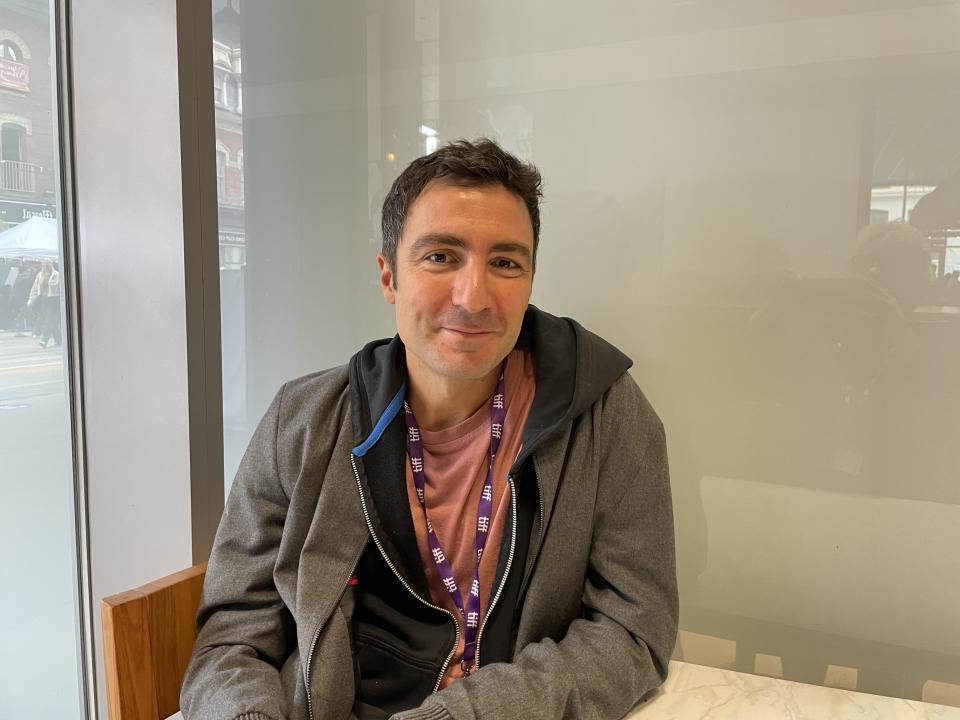
“That was the goal,” said Çatak. “We put pressure on our character. We don’t want it to be airy. You want it to have a drive, also be a thriller.” The filmmakers were influenced by the ambiguities of Michelangelo Antonioni’s “Blow Up” and “Le Jeune Ahmed” by the Dardenne brothers, as well as Laurent Cantet’s “The Class.” “The term from the start of idea to the end of production took almost three years, which is insanely fast.”
As the writers talked about thefts and accusations and false accusations, “it all came together,” said Çatak. “The whole society in which we are living in post-factual times. We quickly realized that school is a model for society: you have people in charge, you have the president, you have a school paper, you have lawyers advocates, and we thought, ‘let’s make a film about our society and the way communication and our debate culture is taking place nowadays. We have a very modern woman and teacher who’s on the right side of things, who also maybe thinks that she’s on a moral high ground. But then all of a sudden she runs into people who think they have the moral high ground, and so she gets canceled. And this [captures] the whole absurdity of our times, where I cannot keep track anymore of what’s going on and whose position is what, and why are people fighting all the time instead of listening to each other? And if you go on Twitter, it’s warfare. And when you have an idea that makes sense, the screenplay writes itself.”
The filmmakers thought they had made a pretty good movie. But when they showed the film to distributors and world sales agents, none of them were interested. They told Çatak, “it’s a solid movie. But we don’t see the international potential.”
Then “The Teacher’s Lounge” had its first market screening in Berlin 2023. And on the first day, nine distributors bought the film. And by the end of Berlin, it was sold out. Sony Pictures Classics took North America. “I started realizing that people resonated with it,” said Çatak.
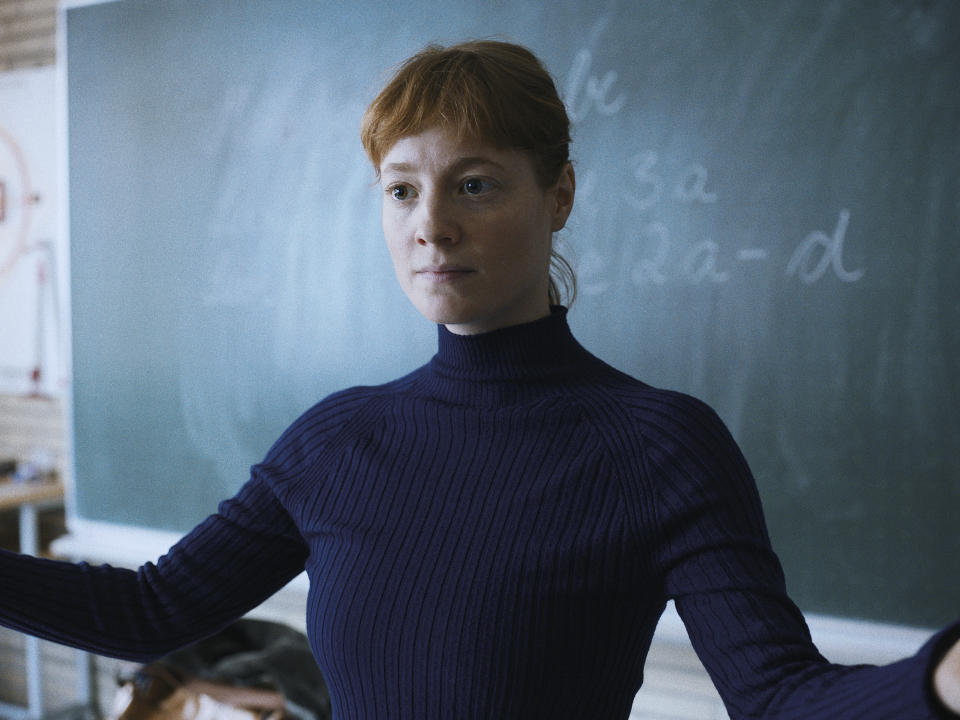
Then the movie swept the German Film Awards, winning five against “All Quiet on the Western Front.” After playing well to German theater audiences, the film was picked as Germany’s official Oscar submission. And then it wowed crowds at Telluride. “We had this one screening in the Sheridan [Opera House],” said Çatak. “And that was the moment where I realized, ‘oh, there is some electricity in the air.’ I’ve never felt that before. And especially when you show it to a foreign audience; you never know what to get, because there’s a lot of subtitles. People have to engage.”
Leaving room for ambiguity — and improvisation — is one secret of the film’s success. Some days Çatak would ask the kids and Benesch to improvise the scenes. “Please help me make it better,” he would tell them. “Here are the rules.”
“Ilker is always interested in both sides of the coin,” said Benesch on Zoom. “No one is only a victim or only a perpetrator. Everyone is both and that’s how he views life. He’s never interested in just one color. Also, he’s fantastic with people, not just actors, but with people.”
32-year-old Benesch is the throbbing heart of the movie, embodying Carla’s idealistic insecurity. The actress launched her career with Michael Haneke’s “White Ribbon,” attending Cannes and Oscar festivities at age 18, when she had no idea what she was doing. “I was terrified,” she said. “I had never worn high heels before. I didn’t know how any of it worked. I didn’t know what a photocall was.” So instead of pursuing more acting jobs she went back to school and studied in England at Guild Hall for three years. Since then she’s had steady work in Europe, but has never broken out.
It’s a mystery to Çatak why Benesch hasn’t become a bigger star. “She does not like to put herself in the spotlight,” he said. “She has no social media. She does not sell herself. And she only wants to work with people who have artistic integrity. And that’s the decision. And I adore her for that.”
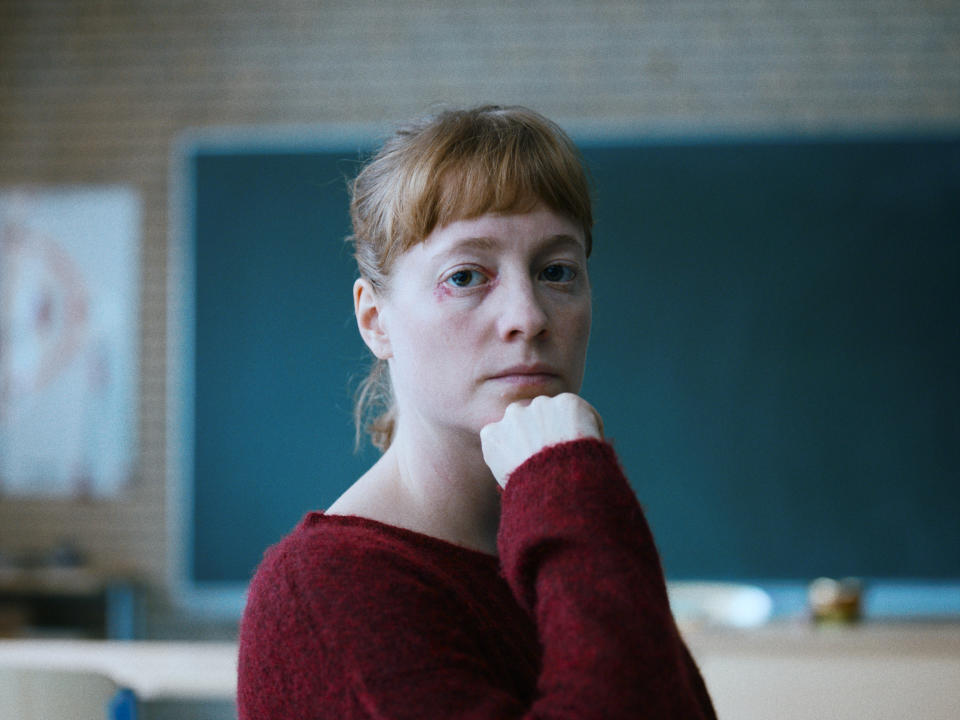
Shooting the movie was easy. “I didn’t have to do much with her because she’s so intelligent,” said Çatak. “She knows intuitively what to do. I didn’t have to say anything. It was like telepathy onset, really. I would do one take and go, ‘alright, we got it.’ And my DP would come to me and say ‘don’t you want to make another take, maybe?’ And I’d say, ‘Okay, one more and that’s it.’ So we would always wrap up early.”
Benesch roots for her character, of course. “We see someone show who they are by the choices they make under stress, under duress,” said Benesch. “It’s clever writing because she seems flawless at first and I find it difficult to pinpoint the moment where she does go wrong. There’s something in the way she has the moral high ground when it comes to her colleagues. And there’s something where the younger generation knows better.”
Carla starts off with one startling decision: to have her laptop camera film in the teacher’s lounge. That leads to a cascade of other misguided choices, including granting an interview to the school paper. Big mistake.
Benesch credits her director for launching each day’s filming with an informal roundtable with the actors. “He took half an hour to 45 minutes out of the filming day to talk to us, to me and the kids about things like, ‘what does it mean to apologize? What do you want to become when you grow older? What do you dream about?’ And he talked to them about art and asked them their opinions. And during those discussions Judith [Kaufmann, the cinematographer] would be already filming the kids. Because they they felt less observed. And a lot of that footage has made the final cut. It created a sense of everyone pulling on the same string. It created a sense of equality that was hugely beneficial and I’m convinced it’s why we finished early every day. It’s difficult to grasp how far the film has come and I can’t fully understand it a lot of the time.”
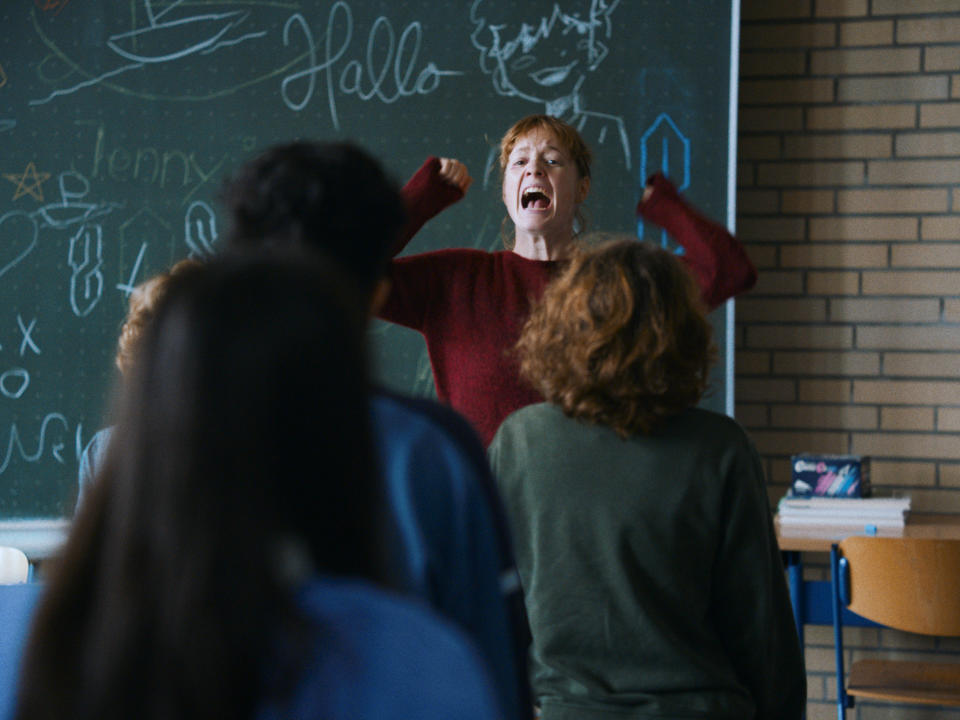
Things are opening up for Benesch. She co-starred with David Tennant in the comedy television remake “Around the World in 80 Days.” “I got to ride into a saloon on a horse,” she said. She jokes with her agents that the list of directors she never wants to work with again keeps getting longer. “It’s nice to be in a position to be able to say no,” she said. “I don’t regret a lot. And nothing terrible has ever happened to me. So I am lucky that way. I’ve always been well-protected, also because I started with Haneke. But there are some some people, all of them men, that I would never work with again. I would rather go into a different profession. They are a certain type of man that have ruled the world for long enough. And they’ve created atmospheres on sets that were fueled by fear and not love for the project.”
Next up: After “The Teacher’s Lounge” she took a year off, she said: “I was quite exhausted.” In the can is Tim Fehlbaum’s “September 5,” starring Peter Sarsgaard and John Magaro, and a Belgium series, “Moresnet.” “It’s very small, there’s one camera. Everyone is really committed. They don’t have a lot of money. It’s back to the roots. And I’m prepping a film that I will be doing in January, February and March in Switzerland.”
A Sony Pictures Classics release, “The Teacher’s Lounge” hits theaters in North America on December 25.
Best of IndieWire
2023 Emmy Predictions: Who Will Win at the Primetime Emmy Awards?
2023 Emmy Predictions: Outstanding Documentary or Nonfiction Special
2023 Emmy Predictions: Outstanding Documentary or Nonfiction Series
Sign up for Indiewire's Newsletter. For the latest news, follow us on Facebook, Twitter, and Instagram.

